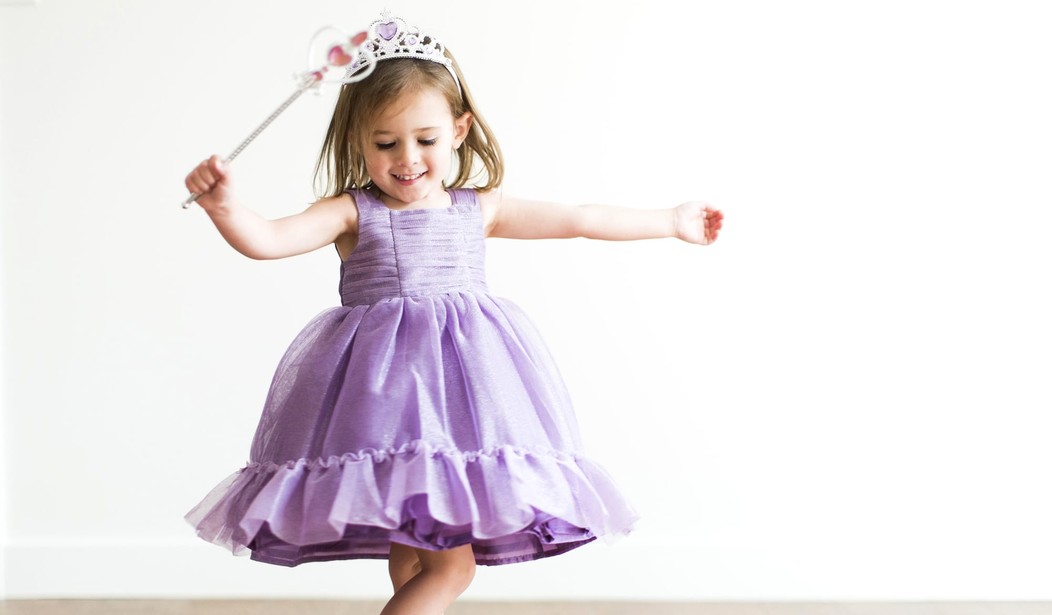Feminists want to rebrand the idea of “princess.” For years they have fought against the natural inclinations of little girls to emulate princesses, trying to convince us that “princess culture” keeps girls oppressed. If left to their own devices, the theory goes, little girls would just as soon play with trucks as tiaras. It’s the same old modern-day feminist nonsense that girls and boys are exactly the same and everything “feminine” is evil. But now, since it’s pretty clear that little girls are going to want to be princesses no matter how much you try to dissuade them, feminists are taking a different tack.
If a recent article in The New York Post is any indication, feminists are willing, it seems, to concede that little girls (for some reason which is a mystery to them because gender is a social construct) want to be princesses. But they think that if they can sneak Wonder Woman, and Princess Leia and She-Ra (princesses highlighted in the article) into the princess line-up, little girls won’t know the difference. That way (presto change-o!) little girls who say they want to be princesses must actually be talking about Wonder Woman, not Cinderella.
So then the NY Post article trots out an old Psychology Today article from 2015 that says that princess play is good for girls and acts like “princess play” means pretending to wield swords and kick intergalactic butt instead of inviting your teddy bears over for tea.
Nice try. But, no. The Psychology Today article, written by Susan Scheftel, is talking specifically about pretty pink princesses, not warrior women. “We have to assume that apparel that makes so many little girls feel so good, so complete, and so empowered must have a representational significance that calls out for understanding, not simply compliance or condemnation,” Scheftel writes. In other words, little girls naturally want to dress up as princesses (the regular kind) so this urge ought to be explored, not silenced.
Scheftel goes on to conclude that “the princess persona seems to highlight these little girls’ beauty and individuality, and to map onto something about their developing identities that is just the opposite of weak and vulnerable.” That’s what feminists don’t (or can’t) understand. That a little girl’s desire to dress like a princess is good in and of itself because it speaks to a girl’s desire to be, as Scheftel puts it, “the beautiful heroine of her own story.”
See, princesses are feminist. They are women at the center of the story. They are true-hearted, kind, brave, mentally strong, and often have to overcome intense adversity all on their own. They’re not men, they’re women. And if you’re looking for a strong woman you need look no further than the Cinderellas, Rapunzels, Belles, and Ariels of the world. Asking little girls to give that up is asking them to become secondary characters instead of the strong protagonists they naturally aspire to become.
See, when your baseline premise (that boys and girls are inherently the same) is wrong, you end up coming to all kinds of ridiculous conclusions. The NY Post article quotes a study which found that “engagement in Disney Princess toys among girls ages 5 and 6 ‘was associated with more female gender-stereotypical behavior.’” Well… duh. But the implication here is that that’s bad. In order to maintain this fallacy, feminists end up condemning women by scoffing at their natural inclinations and bemoaning the fact that they’re not more like men.
Let’s just get real. Girls like princesses, and that’s a good thing. Princesses embody emotional strength, capability, and self-confidence. They are kind, virtuous, graceful, and loving. They are women. So of course, little girls want to emulate them. Forcing them to steer clear of princesses tells little girls that their natural “girl-ness” is wrong. That they must be more like boys. Because boys (apparently) are better than girls. Is that what feminists really want?
Follow me on Twitter @FaithKMoore or on Facebook @DisneyPrincessAddict.









Join the conversation as a VIP Member